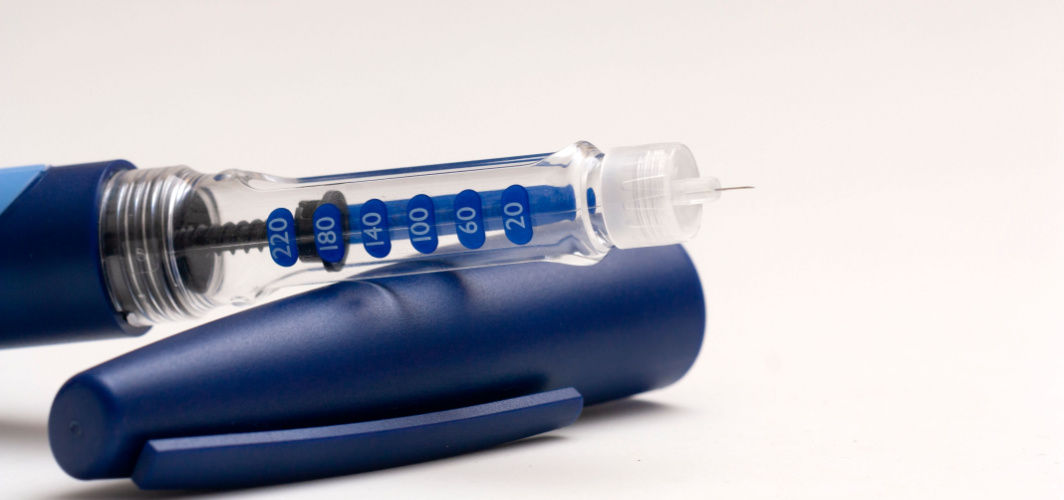Diabetes Management
An Apple a Day: A Nutritional Approach to Diabetes Care
2 min read
By Apollo 24|7, Published on - 14 August 2024
Share this article
0
0 like
.jpg?tr=q-80)
Can consuming apples support diabetes management? The answer is, indeed, affirmative! Not only are apples delicious, they come packed with an array of nutrients that can have positive effects on blood sugar control. However, as with any other food, it's essential to know the best ways to incorporate them into your diet and what makes them a great choice for individuals managing diabetes.
Understanding the Nutritional Profile of an Apple
- Fibre-Rich: With 4 grams of dietary fiber in a medium-sized apple, this fruit can aid in slowing the digestion and absorption of sugars, thus preventing sudden spikes in blood sugar levels.
- Low Glycaemic Index (GI): With a GI of 39, apples cause minimal impact on blood sugar levels compared to foods with a high GI.
- Fructose as Sugar: The primary sugar in apples is fructose which causes less of a blood sugar spike compared to glucose or sucrose, making apples a favorable choice.
- Antioxidant Powerhouse: Apples boast of antioxidants like quercetin that may improve insulin sensitivity and reduce the risk of type 2 diabetes. These compounds also help stabilize blood sugar levels.
Making Healthy Apple Choices
- Choose Whole Apples: Stick to whole apples over apple juice or processed apple products to retain the fiber and nutrients without added sugars.
- Pair it Up: Eating apples with a source of protein or healthy fats can help control blood sugar spikes and enhance satisfaction.
- Watch Portion Size: Opt for small apples or half of a larger one to manage carbohydrate intake and blood sugar levels.
- Don't Peel Off the Benefits: The skin of the apple is rich in fibre and antioxidants so eat it unpeeled for maximum benefits.
Evidently, incorporating apples into a diabetes-friendly diet can offer several health benefits, including improved blood sugar control. However, remember to monitor portion size and observe individual responses to fruit consumption. Including a variety of fresh fruits and vegetables in your diet, along with being mindful of carbohydrate intake, can help manage diabetes effectively.
Furthermore, enrolling in program like the Apollo Super 6 can provide additional support in managing diabetes through improved diet, increased physical activity and personalised guidance.
Diabetes Management
Consult Top Diabetologists
View AllLeave Comment
Recommended for you

Diabetes Management
What are the Factors that Influence Insulin Action?
Insulin action refers to the ability of insulin to regulate blood sugar levels and various metabolic processes in the body. Insulin action is influenced by factors like, your weight, physical activity, diet, hormones, medications, stress, sleep, age and genetics. Insulin sensitivity varies among individuals and can be affected by lifestyle and genetic predispositions. Maintaining a healthy lifestyle through diet, exercise, and stress management is essential for optimal insulin action and metabolic health.

Diabetes Management
The Use of DPP-4 Inhibitors for the Treatment of Diabetes
Dipeptidyl Peptidase-4 (DPP-4) inhibitors like Sitagliptin and Linagliptin are potent allies in the management of type 2 diabetes. Their action enhances incretin hormones, leading to effective blood sugar control without the risk of hypoglycaemia or weight gain. However, considerations such as renal function and potential side effects need to be evaluated before prescribing. Enrolling in a comprehensive programme like Apollo Super 6 can provide the necessary support in managing diabetes effectively.

Diabetes Management
Can One Eat Radish During Navratri Fasts?
During Navratri, a festival celebrated over nine days in India, fasting is common as a means of spiritual purification. Radishes, being root vegetables, are a subject of debate for many as to whether they can be consumed during this fasting period. The acceptance of radishes during Navratri fasting depends on regional and cultural variations, individual customs, and personal beliefs. In many Hindu traditions, root vegetables are avoided during fasting, yet they offer valuable nutritional benefits.
Subscribe
Sign up for our free Health Library Daily Newsletter
Get doctor-approved health tips, news, and more.
Visual Stories

8 Fruits That are Incredibly Healthy for Diabetes
Tap to continue exploring
Recommended for you

Diabetes Management
What are the Factors that Influence Insulin Action?
Insulin action refers to the ability of insulin to regulate blood sugar levels and various metabolic processes in the body. Insulin action is influenced by factors like, your weight, physical activity, diet, hormones, medications, stress, sleep, age and genetics. Insulin sensitivity varies among individuals and can be affected by lifestyle and genetic predispositions. Maintaining a healthy lifestyle through diet, exercise, and stress management is essential for optimal insulin action and metabolic health.

Diabetes Management
The Use of DPP-4 Inhibitors for the Treatment of Diabetes
Dipeptidyl Peptidase-4 (DPP-4) inhibitors like Sitagliptin and Linagliptin are potent allies in the management of type 2 diabetes. Their action enhances incretin hormones, leading to effective blood sugar control without the risk of hypoglycaemia or weight gain. However, considerations such as renal function and potential side effects need to be evaluated before prescribing. Enrolling in a comprehensive programme like Apollo Super 6 can provide the necessary support in managing diabetes effectively.

Diabetes Management
Can One Eat Radish During Navratri Fasts?
During Navratri, a festival celebrated over nine days in India, fasting is common as a means of spiritual purification. Radishes, being root vegetables, are a subject of debate for many as to whether they can be consumed during this fasting period. The acceptance of radishes during Navratri fasting depends on regional and cultural variations, individual customs, and personal beliefs. In many Hindu traditions, root vegetables are avoided during fasting, yet they offer valuable nutritional benefits.

